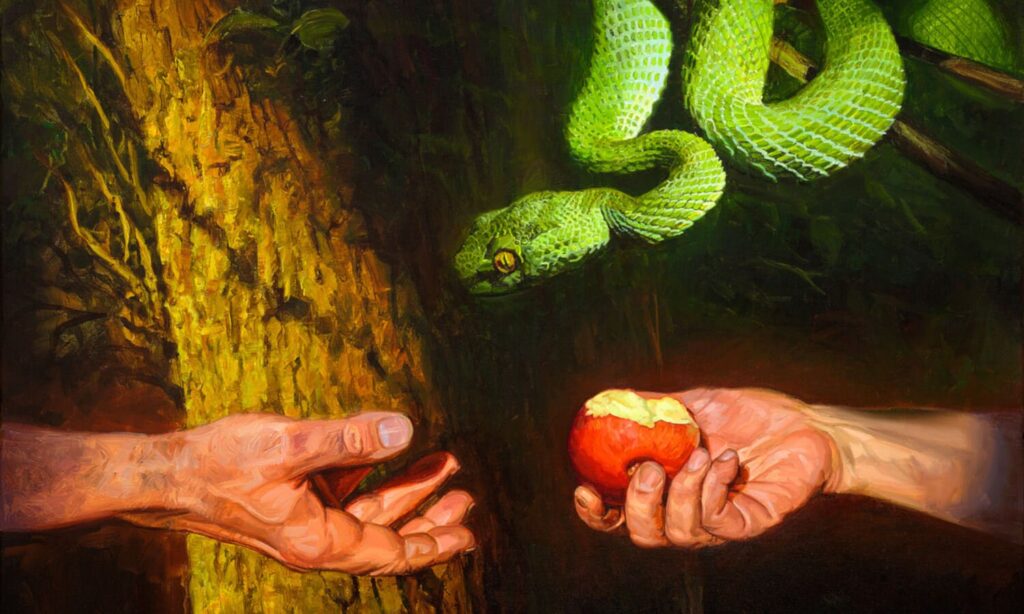Introduction
The story of Adam and Eve’s disobedience in the Garden of Eden is a central narrative in the Bible, highlighting the cunning serpent’s role in leading humanity astray. This blog delves into the serpent’s deception and the profound implications of the fall, offering insights and lessons that remain relevant today.

The Serpent in the Garden
In Genesis 3:1, the serpent is introduced as “more cunning than any beast of the field which the Lord God had made.” This creature’s cunning nature sets the stage for the pivotal act of temptation and deceit. The serpent’s question to Eve, “Did God really say, ‘You must not eat from any tree in the garden’?” (Genesis 3:1), was a strategic move to create doubt and confusion.
The Deception Unfolds
The serpent’s next tactic was to contradict God’s warning. In Genesis 3:4-5, the serpent claims, “You will not certainly die… For God knows that when you eat from it your eyes will be opened, and you will be like God, knowing good and evil.” This lie appealed to Eve’s desire for wisdom and equality with God, leading her to eat the forbidden fruit and share it with Adam.
Consequences of Disobedience
Adam and Eve’s disobedience had immediate and severe consequences. They were expelled from the Garden of Eden and faced a life of hardship and mortality. The serpent was also cursed: “Because you have done this, cursed are you above all livestock and all wild animals! You will crawl on your belly and you will eat dust all the days of your life” (Genesis 3:14).
Symbolism of the Serpent
The serpent in the Garden of Eden is traditionally seen as a symbol of Satan or evil. Its cunning nature and role in leading humanity into sin highlight the ongoing presence of temptation and deceit. This story serves as a reminder of the dangers of disobedience and the importance of adhering to God’s commandments.
Modern Interpretations
Modern interpretations of the serpent’s role vary. Some view the serpent as a symbol of humanity’s inner struggles and the complexity of free will, while others see it as representing external influences that lead individuals away from righteousness. Despite differing views, the serpent’s role in the fall remains a powerful symbol of temptation and its consequences.
Lessons from the Fall
- Obedience to God: Adam and Eve’s story underscores the importance of obeying God’s commands. Disobedience leads to severe consequences, affecting not just the individual but all of humanity.
- Nature of Temptation: The serpent’s cunning tactics reveal how temptation often comes in subtle and appealing forms. Recognizing and resisting such temptations is crucial.
- God’s Justice and Mercy: While the fall resulted in punishment, it also set the stage for God’s redemptive plan for humanity. Despite the consequences, God’s ultimate desire is to restore and reconcile.
Conclusion
The serpent’s role in the fall of man serves as a profound reminder of the perils of temptation and the importance of obedience to God. This narrative not only highlights the cunning nature of evil but also emphasizes the need for vigilance and faith in our spiritual journey. Reflecting on this story helps us understand the ongoing battle between good and evil and the necessity of steadfast faith.








